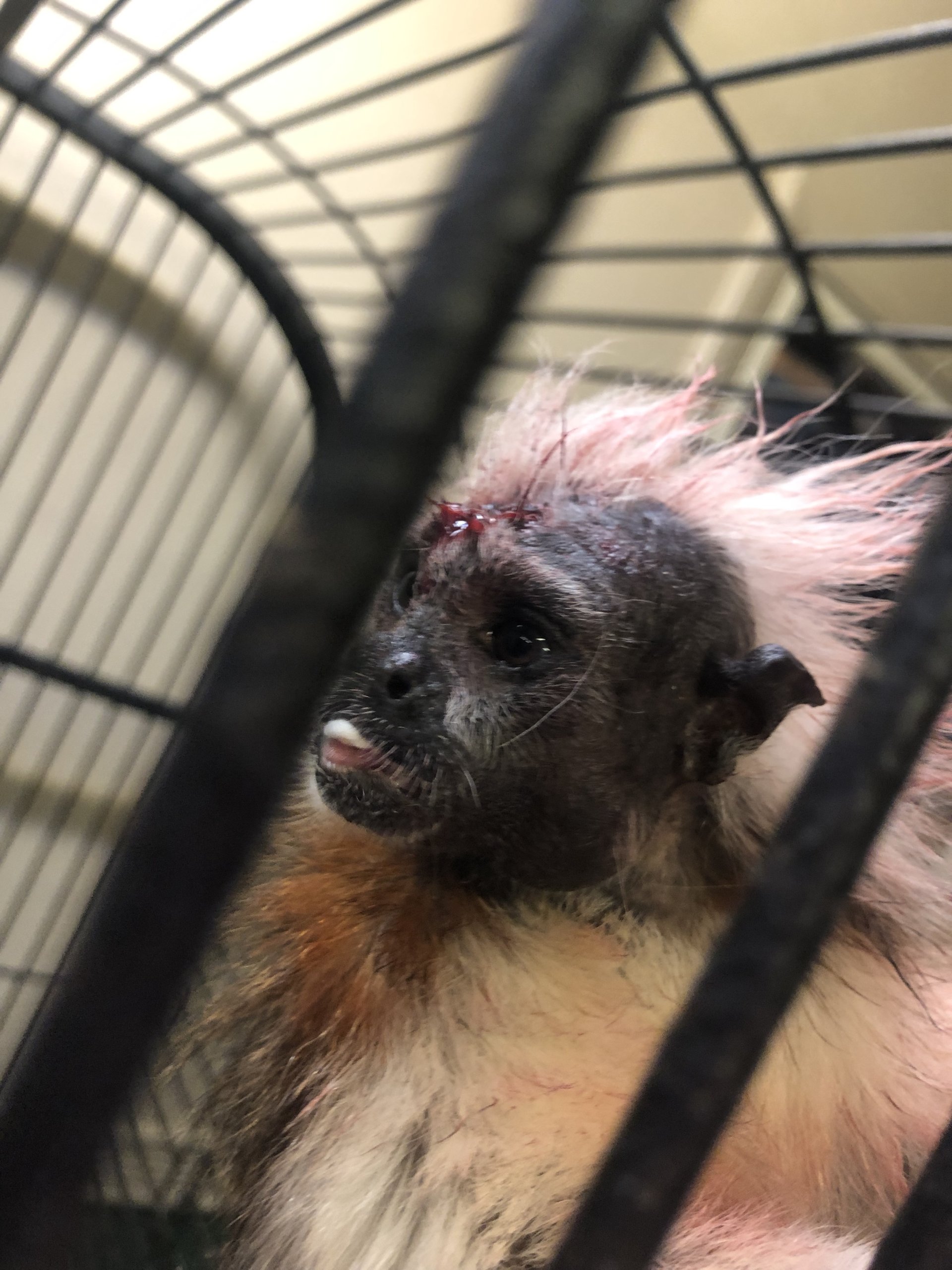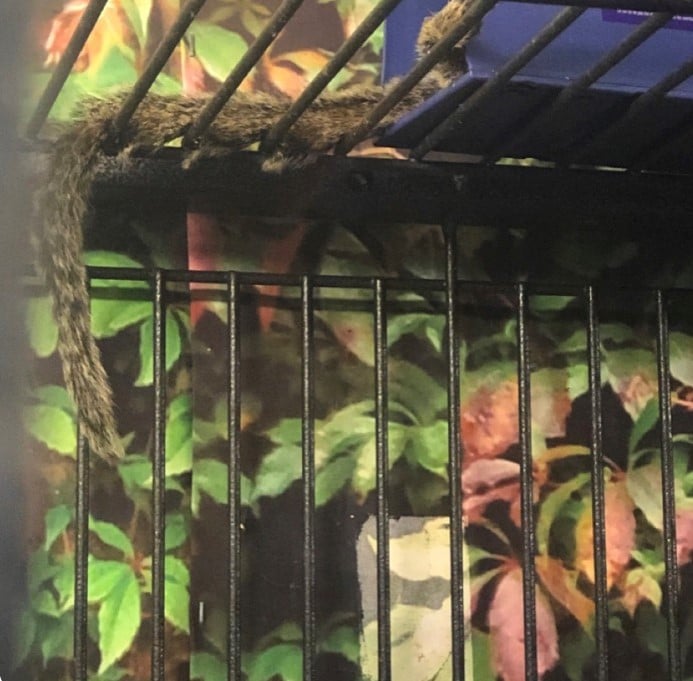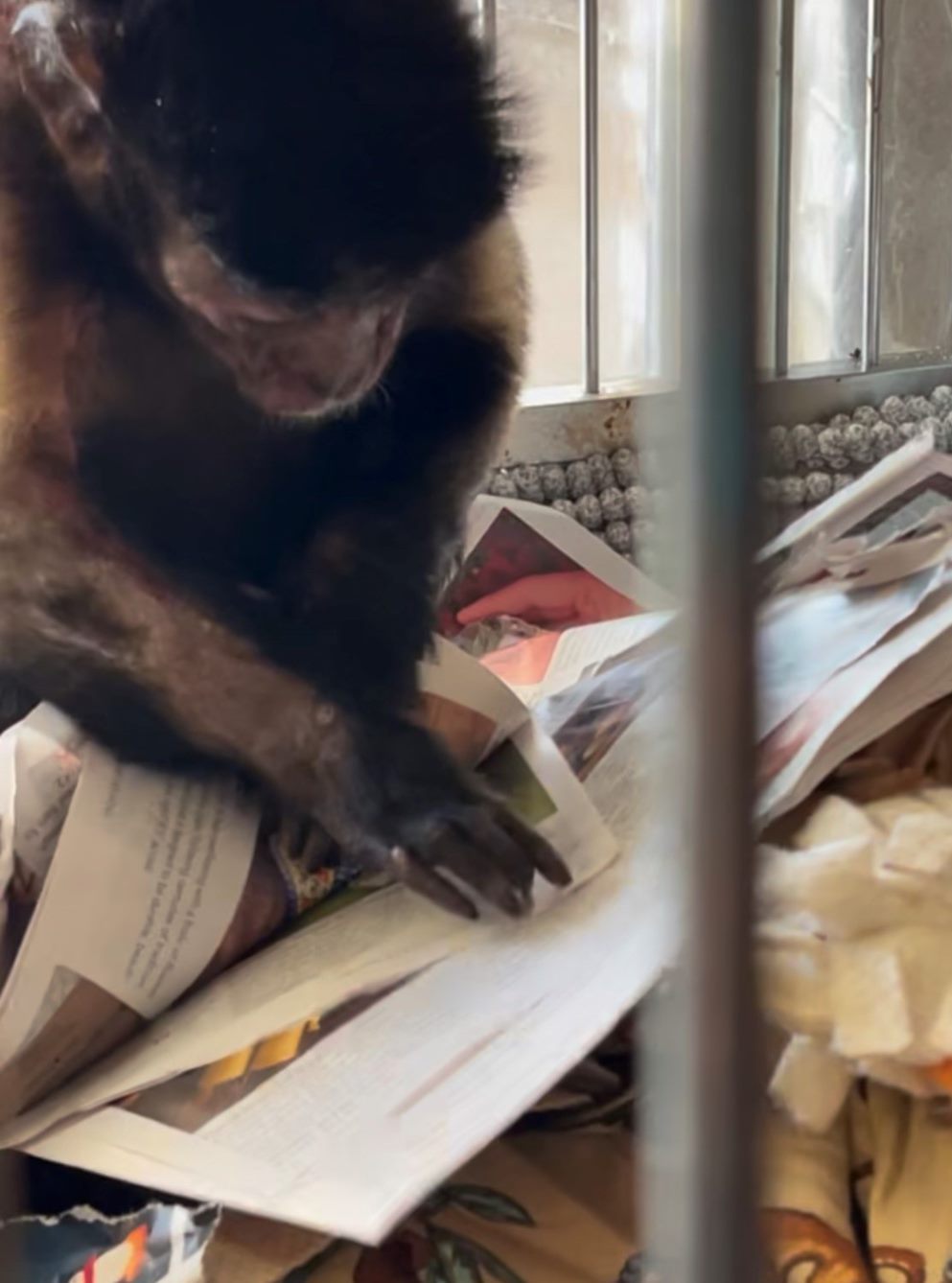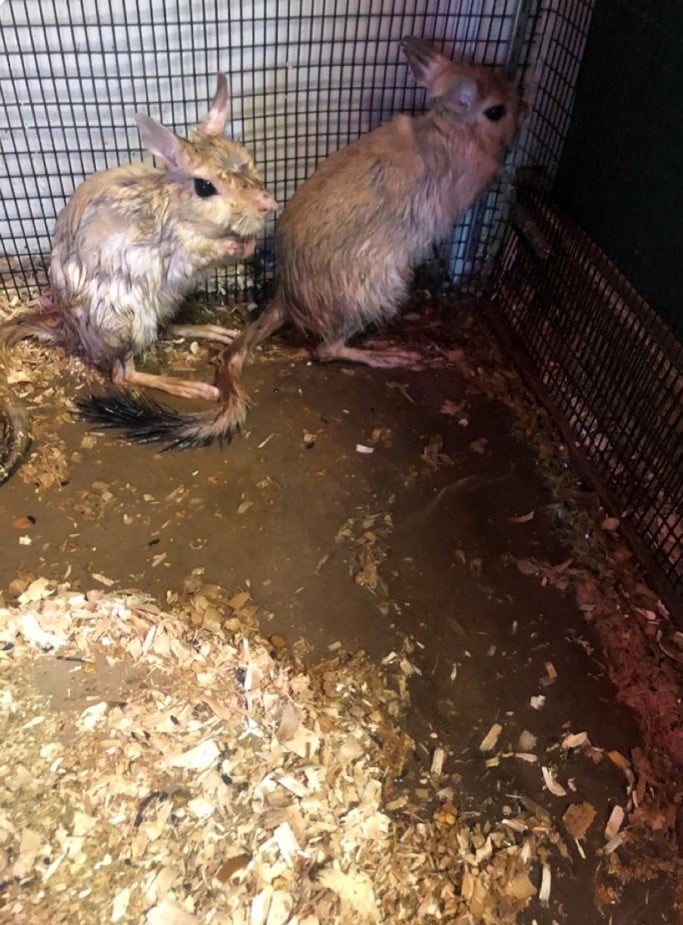Mini ‘S’ Exotic Zoo Repeatedly Fails Animals and Incurs Critical Citations
The horror behind the scenes at Mini “S” Exotic Zoo—a crummy roadside facility in Mineola, Texas, that touts itself as a “conservation” advocacy center—was brought to the surface after a former employee-turned-whistleblower tipped PETA off to the appalling conditions there. Following a PETA complaint about the hellhole, the U.S. Department of Agriculture (USDA) slapped Mini “S” Exotic Zoo with an eight-page report chock-full of citations—including a critical citation over the death of a marmoset who had been let out of an enclosure and electrocuted in a rodent trap, which resulted in an official warning from the agency.
The USDA inspected Mini “S” Exotic Zoo twice during May and June of 2023, slapping it with citations both times. Michelle Smith, the facility’s owner, repeatedly failed to provide animals with the bare minimum of care required by law. The first relicensing inspection report details how the disreputable zoo incurred citations—including a critical one—for acquiring two infant spider monkeys from an unlicensed dealer, having dirty food prep areas, and holding animals in enclosures with feces, no enrichment, and missing wires. The second relicensing report reveals that the facility failed to secure veterinary care for three primates who were showing signs of illness.
Prior to that, the USDA cited the roadside zoo for failing to provide veterinary care for numerous ailing animals, including a springhare with hair loss who was wobbly on her back legs, a cotton-top tamarin and two fennec foxes with hair loss, red-ruffed lemurs with loose stools, and a sand cat with eye discharge and hair loss on the nose.

Mini “S” Exotic Zoo was also nailed for its filthy, insect-ridden enclosures as well as for leaving exposed electrical cords near animal enclosures and subjecting a sloth to improper temperatures.
It was further cited for confining marmosets and tamarins to cages that measured only 2 square feet. These species of primates are arboreal and would spend their days jumping through the trees of the Brazilian forest—but the roadside zoo confined them to cramped cages for days because the exhibitor said they were being sold, likely to another roadside zoo or animal exploiter.
The whistleblower allegedly witnessed that the facility failed to contact a veterinarian immediately—or sometimes at all—for animals in need of veterinary care or euthanasia, causing them prolonged suffering. The former employee also reported multiple enclosures in disrepair, putting the animals at risk of injury and illness.
Don’t Trust Sham ‘Conservation’ Outfits
Seedy roadside zoos like Mini “S” Exotic Zoo often exploit animals under the bogus claim that they’re championing “conservation” efforts—but this couldn’t be further from the truth. There’s nothing educational about forcing animals into stressful public encounters; allowing visitors to hold, poke, and prod them; and confining animals to dilapidated cages for profit. You can help animals suffering at tourist traps by never giving these facilities your money.
Take action below to speak up for animals suffering at Mini “S” Exotic Zoo:




